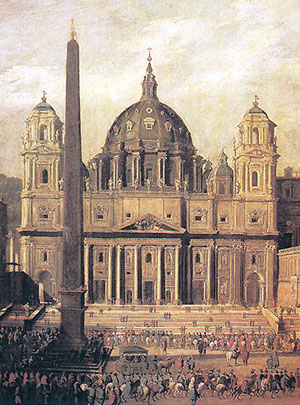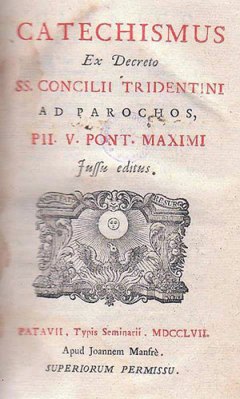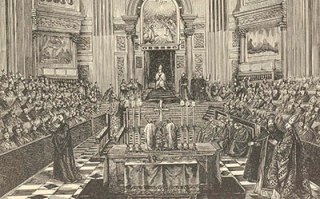This blog was begun out of Facebook posts I began writing during Advent. And so it is perhaps fitting that, as this time of year rolls around again, I should offer some thoughts on the season. As usual, they will be vexing and vexed, but here goes.
To begin, I don’t know who to be more frustrated with: those who reduce the season to commercialism and saccharine songs that are not even good by pagan standards, or those who allegedly want to put the Christ back in Christmas – by which they usually mean their favourite id(e)ol(ogy) which they have given the name Christ. If I were feeling uncharitable, I might make some sort of comment about it being impossible to put the Christ back in Christmas without putting the Mass back in Christmas, and you can decide for yourselves what I mean by that – at the very least, it means that it is certainly hard to understand Christ apart from the work of His bride through whom he has chosen to reveal himself. But I am not feeling much more uncharitable than normal, so I shall leave it at that for now.
What I do want to talk about though is how we navigate this odd holiday context in which Christ is in some way inescapable – for simply calling it “the holidays” or dating the world back to BCE rather than AD is just a manipulation of language; there is still the history behind the thing we are celebrating, and the uncomfortable fact that in secularity we are left with neither supernatural nor even basic pagan reasons for keeping the feast. In such a context, we are left with a vague feeling that we should have warm hearts and special generosity around this time because – well, because it’s Christmas.
Perhaps the most positive way we can put this is that the season is a mystery in the cultic sense – we don’t really know why or what we are doing when we celebrate Christmas, but we do so anyway because something in the mystery draws us; like Bryan Adams we simply feel that there’s “something about Christmas time,” and because of the difficulty of sustaining such a mystery religion in a modern, “progressive” world, we find ourselves longing for the infantile innocence of stupidity, which we excuse by mislabeling it as childlikeness, but nonetheless need if we are at all to maintain a state of confusion of which we are rightly fond as something preferable to pure secularity. In the immemorial words of Josh Groban, “you have everything you need, if you just believe” – and it is integral to the maintenance of this season that the fact of belief rather than the content of what is believed in is emphasized.
But if this is a problem for those who want to celebrate Christmas but have no idea why, it is equally a problem for Christians, who ought to know better than to simply lock themselves in a fortress-like dualism over against an ostensibly confused culture. We all know the rhetoric on the other side, the return to the “true meaning” of Christmas, whether this is understood as the iteration of Christ’s nativity narrative, a particular sobriety, the ousting of mammon, or the rather childish abolition of Santa Klaus and other Christmas mythopoeia. What always astounds me about this position is the dead certainty with which these people seem to know the “true meaning” of Christmas. Really? Is it so simple to grasp the fact of God becoming human and also remaining God? Have we really got a handle on this such that we can go about like busybodies correcting the imaginations of our friends and relatives? As you can see, I am happy about neither stance – confused secularism or dead certain faith with an emphasis on “dead.” So where can we find the answer? In ghosts, evidently.
Yes, quite seriously, I think we would do well to pay heed to Dickens and the spooky stories of twelfth night because they get at a fact about Christ’s incarnation that neither the secular sops nor the hard-nosed Chistian killjoys understand; what is primary about Christmas is that it is uncanny. Let me explain. In literary theory, when we talk about “the uncanny,” we are not talking about simple concrete gruesome horror, nor are we talking about something that cannot be known at all. No, what is uncanny exists in a realm that is related in a complicated way to our epistemologies – in negative terms, we might say it is uncertain, or in more positive terms, we might say it is a mystery. The uncanny disappears when certainty appears on either side, that is, when the ghost we are afraid of is debunked, or when it is put to rest within a solid and comprehensive metaphysics. In some Christmas traditions, this uncanniness is negative, as in the case of the poem “Old Christmas Morning,” but in Dickens, the uncanny ghost exists halfway between the worlds of marvel and terror, and the uncanniness of time – that is, the ungraspability – is shown in the persons of present, past, and future. What I want to suggest is that, far from being a distraction from the “true meaning” of Christmas, this tradition of uncanniness gestures in an analogical way to the central story of Christmas – the uncanniness of Christ’s incarnation. “It’s the Most Wonderful Time of the Year” speaks more truth than ought to be allowed such a schmaltzy song when it speaks of “scary ghost stories and tales of the glories,” for in a very real sense, the stories are of a piece. What ghosts are to our perception in a negative sense, the incarnation of Christ – inspired after all by a Holy Ghost – is in a positive sense. And we know this from the gospel of John.
For it is in John more than any other gospel that we get the fullest account of Christ’s birth. No, it is not the gospel we usually associate most closely with the Christmas story, given the omission of historical details. Yet there is a strong case to be made that John does in fact recount the Christmas story in the opening of his book – the difference is that he is recounting it from a metaphysical rather than merely human perspective. John, the eagle, looks into the sun of righteousness, and is dazzled. To say John points to the “true meaning of Christmas” here would be moot; rather, the logos has got hold of him and won’t let go. The fish need not draw attention to the whale.
But if this – what John is describing – can happen, then anything might happen. And this is the explanation of the uncanny stories that crop up at Christmas. Our imaginations are tantalized. In such a world, challenged as it is by the incarnation of God, men might come back from the dead. Flowers might bloom in the bleak of winter. Sinners might even learn to repent.
Aside from the more frightening instances of uncanniness, this also helps explains much of the needless frivolity, absurdity, and complete silliness of Christmas – which is perfectly justifiable on Christian grounds. In a world in which God can become incarnate, even the most foolish of things has potential to be folly for God. We do very silly things like sing songs of hope in the middle of a blizzard, or gather together with the people we argue most with – our family – and talk about peace on earth, good will toward men. Indeed, this overturn – this incarnation – may be enough even to redeem the most unredeemable of things. Even kitsch and schmaltz and jest might with the mages lay their gifts at the manger. This comes to pass, when a child is born.
What is clear then is this – that, when Christians seek to have a stranglehold on the “true meaning of Christmas,” they often miss the fact that its truest meaning is dazzling mystery, a mystery indeed patient enough to wait out their clumsy attempts to wield it like a club. Seculars and pagans get the bit about mystery – but without anywhere to point, it collapses into a dualism between ignorant sentimentalism and cynical despair. And it is with these problems in mind that I want to wish you all a Christ-haunted Christmas.
The description is Flannery O’Connor’s, asserting that if the US south is hardly Christ centered, it is certainly Christ-haunted. And it is precisely this perspective I propose in our approaches to Christmas. The season is saturated with Christian images, and imagery, and palimpsests, and erasures. Yet simply trying to go back to a “good old days” when people knew what Christmas was about is not the answer; nor is the answer steamrolling current society so we can rebuild a Christmas worthy of Christendom. No, what I suggest is a return to the mystery of incarnation, a mystery so powerful it does not even need to speak about itself all the time, but can in fact sustain imagination and the beauty of the world – from the highest instances of these to the silliest. All these instances point of course to the one Instance in the scansion of the inscape of creation, and we would do well to follow O’Conner in the realization that even a chaos and confusion of symbols and theologies – a thoroughly haunted labyrinth – is not a great obstacle to a God who calls order out of chaos and enters that order in the ambiguity known to us as flesh, and as the Ghost Who haunts us, moving as He lists.

 Some time ago my friend Churl began a series of posts here on A Christian Thing discussing his frustration at the Evangelical tradition in which he was raised and his attraction to Roman Catholicism. Of course, Churl has always recognized these are not the only options: there is Orthodoxy, of course; and on the Protestant side, there are options like Anglicanism and Lutheranism. Alongside Churl’s posts, Chinglican has been chiming in with his defence of Anglicanism, but the Lutheran on this blog has been remarkably silent. That’s not to say I haven’t any opinions on the subject. I do. In fact, Churl and I have discussed the topic on a number of occasions outside of the blog (you know, in real life). But while I have many opinions, I have much less time in which to write them down.
Some time ago my friend Churl began a series of posts here on A Christian Thing discussing his frustration at the Evangelical tradition in which he was raised and his attraction to Roman Catholicism. Of course, Churl has always recognized these are not the only options: there is Orthodoxy, of course; and on the Protestant side, there are options like Anglicanism and Lutheranism. Alongside Churl’s posts, Chinglican has been chiming in with his defence of Anglicanism, but the Lutheran on this blog has been remarkably silent. That’s not to say I haven’t any opinions on the subject. I do. In fact, Churl and I have discussed the topic on a number of occasions outside of the blog (you know, in real life). But while I have many opinions, I have much less time in which to write them down. Let me refer to just one of these authorities: The Council of Trent. To be Roman Catholic means to accept these extraordinary dogmata (ie, doctrines declared necessary by the church to be believed by all); failure to accept even one such dogma places one outside the Church (for such is the Magisterium of Roman Catholicism). To Trent then:
Let me refer to just one of these authorities: The Council of Trent. To be Roman Catholic means to accept these extraordinary dogmata (ie, doctrines declared necessary by the church to be believed by all); failure to accept even one such dogma places one outside the Church (for such is the Magisterium of Roman Catholicism). To Trent then: It will not do to simply suggest we reinterpret these condemnations, or to say that our understanding of the Councils’ words have evolved over time. Indeed, Vatican I strictly condemns such reinterpretation of accepted doctrine: “The meaning of the sacred dogmas is ever to be maintained which has once been declared by Holy Mother Church and there must never be abandonment of this sense under the pretext or in the name of a more profound understanding” (Vatican 1, Session 3 Chapter 4:14). Saying we understand better (ie, have a “more profound understanding” of) the dogma than its framers is thus forbidden. And more forcefully: “If anyone says that it is possible that at some time, given the advancement of knowledge, a sense may be assigned to the dogmas propounded by the Church which is different from that which the Church has understood and understands, let him be anathema” (Vatican I, Session 3 Canon 4:3).
It will not do to simply suggest we reinterpret these condemnations, or to say that our understanding of the Councils’ words have evolved over time. Indeed, Vatican I strictly condemns such reinterpretation of accepted doctrine: “The meaning of the sacred dogmas is ever to be maintained which has once been declared by Holy Mother Church and there must never be abandonment of this sense under the pretext or in the name of a more profound understanding” (Vatican 1, Session 3 Chapter 4:14). Saying we understand better (ie, have a “more profound understanding” of) the dogma than its framers is thus forbidden. And more forcefully: “If anyone says that it is possible that at some time, given the advancement of knowledge, a sense may be assigned to the dogmas propounded by the Church which is different from that which the Church has understood and understands, let him be anathema” (Vatican I, Session 3 Canon 4:3).

 Ditto early twentieth century Irish writer James Joyce’s sacramental modernism. Joyce publicly renounced Catholicism, a shift autobiographically fictionalized in the Stephen Dedalus character in A Portrait of the Artist as a Young Man, yet in a letter to his brother, Joyce writes:
Ditto early twentieth century Irish writer James Joyce’s sacramental modernism. Joyce publicly renounced Catholicism, a shift autobiographically fictionalized in the Stephen Dedalus character in A Portrait of the Artist as a Young Man, yet in a letter to his brother, Joyce writes:

 Driscoll’s theology works with frozen categorical concepts, and doesn’t that sound just like the neo-Thomistic rationalism that
Driscoll’s theology works with frozen categorical concepts, and doesn’t that sound just like the neo-Thomistic rationalism that  Besides, for reasons that will become apparent below, Driscoll might actually really like these documents for their discussion of abortion and potential abortifacient contraception. But on the “sex is gross” thing, John Paul II does say in the Theology of the Body catecheses that he wants the Catholic faithful to see that “our human experience is in some way a legitimate means for theological interpretation” (
Besides, for reasons that will become apparent below, Driscoll might actually really like these documents for their discussion of abortion and potential abortifacient contraception. But on the “sex is gross” thing, John Paul II does say in the Theology of the Body catecheses that he wants the Catholic faithful to see that “our human experience is in some way a legitimate means for theological interpretation” (